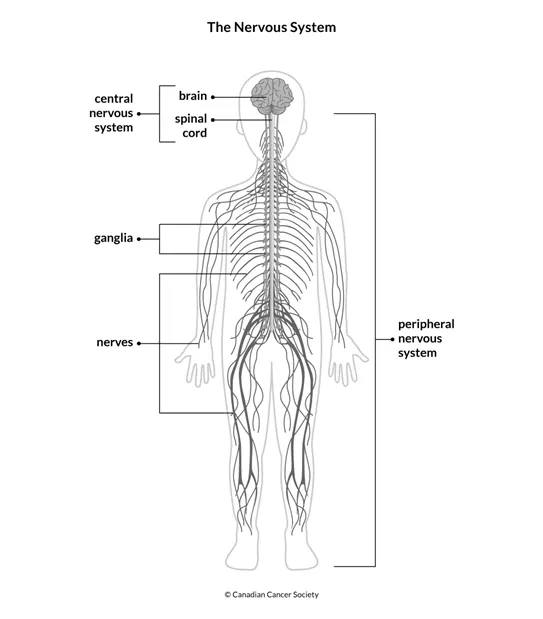What is neuroblastoma?
Neuroblastoma is a cancer that starts in immature nerve cells (neuroblasts) in the sympathetic nervous system. A cancerous (malignant) tumour is a group of cancer cells that can grow into nearby tissue and destroy it. The tumour can also spread (metastasize) to other parts of the body.
The sympathetic nervous system is part of the nervous system. The nervous system is a complex network of nerves and cells that carry signals or messages to and from the brain and spinal cord to different parts of the body. The nervous system is made up of the central nervous system and the peripheral nervous system. The sympathetic nervous system is the part of the peripheral nervous system that prepares the body for action. The nerves in this system control the fight-or-flight response. They respond to situations where you need strength and awareness, such as those that cause fear, anger, excitement or embarrassment.

Neuroblastoma most commonly occurs in babies and young children. It can develop anywhere in the sympathetic nervous system, but it starts most often in the abdomen in the adrenal gland that lies just above the kidney. It can also start near the spinal cord in the neck, chest or pelvis.
Changes to neuroblasts can also cause non-cancerous (benign) conditions such as ganglioneuroma.
In rare cases, changes to neuroblasts can lead to ganglioneuroblastoma. This is a rare tumour that is somewhere between non-cancerous and cancerous.
Some neuroblastomas, particularly in babies, can slowly disappear on their own without treatment (called spontaneous regression), or can mature into a benign form such as ganglioneuroma.
